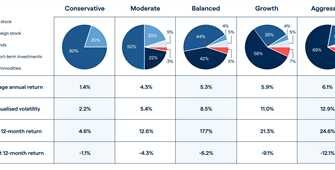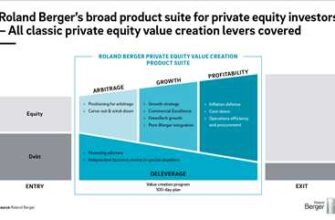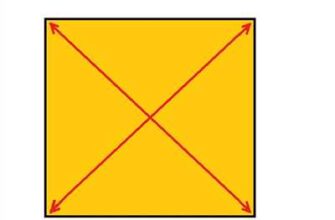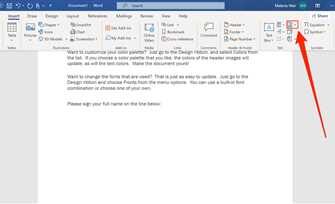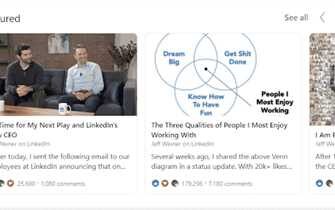
Authors make money in various ways, and the amount they earn can vary greatly depending on several factors. One of the main sources of income for authors is book sales. When an author’s book is published, they typically receive royalties from the sales of their work. These royalties are a percentage of the book’s cover price, and they can range anywhere from a few cents to several dollars per book sold.
In traditional publishing, authors often receive an advance against future royalties. This advance is a lump sum of money that the author receives upfront, before their book is even released. The amount of the advance is usually based on the publisher’s expectations for the book’s sales, the author’s track record, and other factors. If the book sells well, the author will eventually start earning royalties on top of the advance.
Self-published authors, on the other hand, don’t typically receive advances. Instead, they earn money through the sales of their books. Self-publishing allows authors to bypass traditional publishing deals and keep a larger portion of their earnings. However, self-published authors have to do all the work themselves, from editing and cover design to marketing and distribution. It can be a lot of work, but it also gives authors more control over their careers and potentially higher earnings in the long run.
Advances in traditional book deals
When it comes to making money as an author, one of the most traditional routes is through book deals with publishers. In this section, we will explore how advances work in traditional book deals and what authors can expect to receive.
An advance is a sum of money that a publisher pays an author upfront for their work. It is a form of an investment in the author, with the hope that the book will be successful and generate profits. Advances can vary greatly depending on various factors, such as the author’s track record, the genre of the book, and the publisher’s confidence in its success.
In some cases, authors can receive a significant advance, which can be a life-changing sum. However, it’s important to note that not all authors receive large advances, and many receive no advance at all. The amount of the advance is typically negotiated between the author and the publisher, keeping in mind the book’s market potential.
While receiving an advance may seem like a great accomplishment, it’s important to remember that it is not free money. Authors need to earn back the advance through book sales before they start seeing royalty earnings. Royalties are typically paid on a per book basis, and the percentage is agreed upon in the book deal negotiations.
Depending on the publisher and the success of the book, the advance may be the only payment an author receives. In other cases, the advance acts as an upfront payment, with additional royalty payments coming in once the book starts selling. This can be a great motivator for authors to promote their work and drive sales.
It’s important to note that advances are not the only way authors make money. With the rise of ebooks and self-publishing, authors have more options than ever to earn an income. Self-published authors, in particular, have the potential to earn more per book as they have more control over the pricing and royalties in their deals.
In summary, advances play a significant role in traditional book deals, providing authors with an upfront payment for their work. While the amounts can vary greatly depending on the author and the publisher, it’s always essential to remember that earning a living as an author is a long-term career that goes beyond one book deal. Whether you’re a traditionally published author or self-published, the key is to work hard, promote your work, and create a balance between writing and marketing to make the most of your earnings.
The scales aren’t always balanced
When it comes to making money as an author, the scales aren’t always balanced. In the traditional publishing world, authors typically receive an advance from their publisher, which is a payment made before the book is even published. This advance can vary greatly, depending on factors like the author’s previous earnings, the market demand for their work, and the size of the publisher. In some cases, authors can receive advances of thousands or even tens of thousands of dollars.
Once the book is published, authors may receive royalties, which are a percentage of the book’s sales. The royalty rate is typically between 5% and 15% of the book’s cover price, with some variations depending on the specifics of the publishing deal. However, it’s worth noting that not all authors earn enough in royalties to make up for their advance. In fact, many authors never earn back the full amount of their advance, and they may not receive any additional earnings beyond that.
On the other hand, self-published authors have a different way of making money. When you self-publish a book, you don’t receive an advance from a publisher. Instead, you earn money directly from book sales. Self-publishing allows authors to keep a larger percentage of the earnings, typically around 70%. However, self-published authors also bear the costs and responsibilities of editing, cover design, marketing, and distribution on their own.
So, while traditional publishing deals can offer large advances, they also come with the risk that the book may not sell well and the author may not earn much beyond the initial payment. On the other hand, self-published authors have the potential to earn more per book sold, but they also have to do a lot more work to make their book a success.
In today’s market, there are also many different ways for authors to make money outside of publishing. For example, some authors earn income through speaking engagements, teaching writing workshops, or selling merchandise related to their books. Literary agents can also play a significant role in an author’s career, helping them secure book deals and negotiate favorable terms.
It’s important for aspiring writers to know that the amount of money an author can make can vary greatly depending on factors like their genre, the quality of the writing, and the current market demand. While some authors become best-selling successes and earn millions of dollars, most authors earn a modest income from their writing. It’s a challenging and often unpredictable career path, and it’s important to have realistic expectations about what it means to be a professional author.
Differences between traditional and self-publishing
Today, authors have different options for publishing their books and earning money from their writing career. Two popular methods are traditional publishing and self-publishing. While both have their advantages and disadvantages, they offer different opportunities for authors to make money.
In traditional publishing, authors work with a publishing house or literary agent to get their books published. They typically receive an advance payment, which is an upfront sum of money given to the author before the book is published. This advance is usually paid in installments, with some authors receiving a portion before the book is completed and the remainder upon publication. Royalty figures are also determined in the contract, and authors receive a percentage of each book sold. The sales figures are balanced against the advance, and authors may receive additional payments depending on how well their book sells.
In self-publishing, authors take on the role of both writer and publisher. They have more control over the entire process, including cover design, pricing, and marketing. Self-published authors typically earn more per book sold compared to traditional publishing, as they don’t have to share royalties with a publisher. However, they also need to invest more time and effort into marketing their books to reach their target audience.
One of the main differences between traditional and self-publishing is the payment structure. In traditional publishing, authors are paid in advance and receive royalties based on sales. In self-publishing, authors earn money directly from book sales. This means that self-published authors don’t need to wait for a publisher to pay them and can see their earnings much sooner.
In terms of time, traditional publishing can take several months or even years from book deal to publication. On the other hand, self-publishing allows authors to release their book as soon as they are ready, often within a matter of days or weeks.
Another difference is the market reach. Traditional publishing often has wider distribution networks and can get books into more physical and online bookstores. Self-published authors, on the other hand, may have a smaller market reach but can potentially earn more per sale.
Overall, the differences between traditional and self-publishing offer different opportunities for authors to make money. Traditional publishing may provide a more steady income with the possibility of large upfront advances and wider market reach. Self-publishing, while requiring more work and marketing effort, can offer higher earnings per sale and quicker access to royalties. Authors today have the choice to decide which path best suits their goals and ambitions.
How do self-published authors get paid
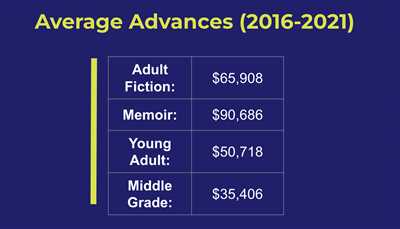
When it comes to self-publishing, authors may not know just how much money they can make from sales of their books. In recent years, however, self-published authors have been able to receive the same kind of financial success as traditionally published authors, if not better. With the market for ebooks always growing, self-published writers can make a deal and get some full-time working months with their literary career.
Depending on the scales, self-published authors can make anywhere from a few hundred to thousands of dollars per book sale. The average earnings for self-published authors can vary, but figures typically range between $500 and $1,500 per month. These numbers may not seem like much compared to what traditionally published authors receive in advances and royalty payments, but they can add up for self-published authors over time.
While advances and royalty payments are different in the self-publishing world, authors typically make more money with each book that sells. Traditional publishers may take a larger share of the royalties, but self-published authors have the advantage of receiving a higher percentage of the book’s price. So, if you’re a self-published author, you can always expect to earn more from each sale compared to traditionally published authors.
Self-published authors can also make money in different ways. For example, they can earn earnings from ebook sales, as well as the print copies of their books. Additionally, authors can make money through other avenues, such as speaking engagements or merchandise related to their book. The possibilities are always open, depending on how creative and entrepreneurial you are.
It’s important to note that self-published authors are responsible for covering all the costs associated with publishing their books. This includes expenses like editing, book cover design, and marketing. However, these costs can be balanced out by the potential earnings that authors can make from their self-published works.
In conclusion, self-published authors have the opportunity to make a significant amount of money from their books. While there are differences in how they get paid compared to traditionally published authors, the financial possibilities are there. With the right market, marketing strategy, and hard work, self-published authors can create a lucrative career for themselves in the world of self-publishing.
How Much Does an Author Make Per Book
When it comes to how much an author can make per book, the answer is not always the same. It all depends on factors such as sales, advances, scales, and the type of publishing deal they get.
In traditional publishing, authors typically receive an advance from the publisher. This is a lump sum of money paid upfront for the rights to publish their book. The amount of the advance can vary greatly depending on the author’s track record, the publisher’s expectations, and the perceived marketability of the book.
Regardless of the advance, authors also receive royalties on each book sold. Royalty figures can vary between publishers, but a typical royalty rate is around 10% of the book’s cover price for trade paperbacks and 25% for hardcovers. However, these figures are just a general guideline, and authors may negotiate higher rates depending on their bargaining power and the success of their previous works.
For self-published authors, the earnings can be more balanced. They have full control over their pricing and receive a larger share of the profits. However, they also need to bear the costs and responsibilities of publishing their own work.
Authors who have successful careers and many published books may receive higher advances and royalties. Some well-known authors can earn thousands of dollars per book and receive multi-million dollar deals from publishers. However, this is not the case for every author, and many writers struggle to make a living solely from their writing.
Today, with the rise of ebooks and self-publishing, there are also differences in how authors are paid. Some self-published authors have found success and made a lot of money selling their books directly to readers. Others may choose to go the traditional route and work with a publisher to reach a wider audience.
It’s important to know that the earnings an author can expect per book vary greatly depending on their individual circumstances. Factors such as genre, marketing efforts, and the size of their audience can all impact their earnings. Additionally, it may take years of hard work and dedication before an author starts making a significant income from their writing.
In conclusion, how much an author makes per book can vary greatly. Whether you’re traditionally published or self-published, an established author or just starting out, the amount of money you’ll earn from your books will depend on a variety of factors. It’s best to have realistic expectations and be prepared for the different deals and earnings potential in the literary world.
How much money do authors make on ebooks
When it comes to making money from ebooks, authors can expect a range of earnings depending on the type of deal they have with publishers or if they are self-published. Regardless of the publishing method, authors can make money through advances, royalties, and sales.
In traditional publishing, authors typically receive an advance on their work, which is a sum of money paid upfront by the publisher. This advance can vary greatly depending on the author’s literary reputation, the market for the book, and other factors. While some authors may receive thousands or even millions of dollars as an advance, others may receive much less.
On top of the advance, authors also receive royalties based on book sales. Royalties are a percentage of the book’s cover price or the publisher’s net receipts. The royalty rates can differ between publishers and are usually balanced between the author and the publisher. In general, authors can expect to earn anywhere from 10% to 25% of the book’s sales.
Self-published authors, on the other hand, have full control over their earnings but also bear all the costs and responsibilities of publishing. They don’t receive advances but can earn more from book sales depending on the market and the success of their work. Self-publishing platforms like Amazon’s Kindle Direct Publishing (KDP) allow authors to earn up to 70% royalty on ebook sales.
It’s important to note that while self-published authors have the potential to earn more per book sale, they also need to invest time and effort in marketing and promoting their work. Traditional publishing deals often come with resources and support from the publisher, which can help reach a wider audience.
Overall, the average earnings for authors can vary greatly. Some authors make significant sums of money from their ebooks, while others struggle to cover their costs. It all depends on factors like the book’s genre, the author’s reputation, the market demand, and the success of their marketing efforts.
So, if you’re an aspiring author wondering how much money you can make from ebooks, there’s no one-size-fits-all answer. It’s best to understand the differences between traditional publishing and self-publishing, and know that your earnings will depend on your unique journey in the literary world.

